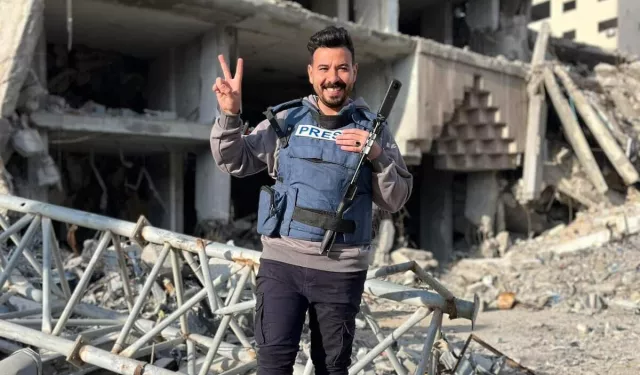Over 160 leaders from media organizations and press freedom groups have issued an urgent open letter demanding “immediate, independent, and unrestricted international media access to Gaza and for full protection of journalists who continue to report under siege.”
The letter, coordinated by the Committee to Protect Journalists (CPJ) and Reporters Without Borders (RSF), highlights a dire situation for reporting in the Palestinian territory. “For 20 months, the Israeli authorities have refused to grant journalists outside of Gaza independent access to the Palestinian territory – a situation that is without precedent in modern warfare,” the letter states.
The letter has garnered support from signatories representing a powerful cross-section of global media institutions and press freedom organizations, including major international news agencies such as Reuters, the Associated Press, Agence France-Presse, CNN, Al Jazeera and the BBC. Publications like The Guardian, Le Monde, and Haaretz also lent their voices, alongside watchdogs like the International Press Institute (IPI) and the World Association of News Publishers (WAN-IFRA).
Signatories, including Nora Younis, Editor-in-Chief of Al Manassa, and Lina Atallah, Editor-in-Chief of Mada Masr from Egypt, along with the Egyptian Initiative for Personal Rights, underscored the severe challenges faced by local journalists. “Local journalists, those best positioned to tell the truth, face displacement and starvation,” the letter notes, adding, “To date, nearly 200 journalists have been killed by the Israeli military. Many more have been injured and face constant threats to their lives for doing their jobs: bearing witness. This is a direct attack on press freedom and the right to information.”
Since the Israeli war on Gaza began on Oct. 7, 2023, international journalists have been largely barred from independently entering the strip. With the exception of brief, tightly controlled excursions embedded with the Israeli military, foreign correspondents have been unable to report freely from within the besieged enclave, severely limiting the global understanding of the conflict's full impact.
The organizations acknowledge the inherent dangers of war zone reporting, stating that “these are risks that many of our organizations have taken over decades in order to investigate, document developments as they occur, and understand the impacts of war.”
With “renewed military action and efforts to resume the flow of humanitarian aid into Gaza,” the letter emphasizes the critical need for change. It asserts that “it is vital that Israel open Gaza’s borders for international journalists to be able to report freely and that Israel abides by its international obligations to protect journalists as civilians.”
This global coalition that reflects a broad geographic diversity, with media organizations spanning every continent including leading outlets from North America, Europe, Latin America, Africa, the Middle East, and the Asia-Pacific region, concludes with a direct appeal: “We call on world leaders, governments, and international institutions to act immediately to ensure this.”
The call comes amidst continued atrocities in Gaza. Last Thursday, three Palestinian journalists were killed in an Israeli drone strike while covering events inside the Baptist Hospital grounds in central Gaza City. On Monday evening, a photojournalist and three paramedics died in a direct Israeli artillery strike during a rescue operation in eastern Gaza City.
On March 18, Israeli forces resumed their offensive on the Gaza Strip, reigniting a war that began on Oct. 7, 2023, after refusing to complete a ceasefire agreement that took effect on Jan. 19.
